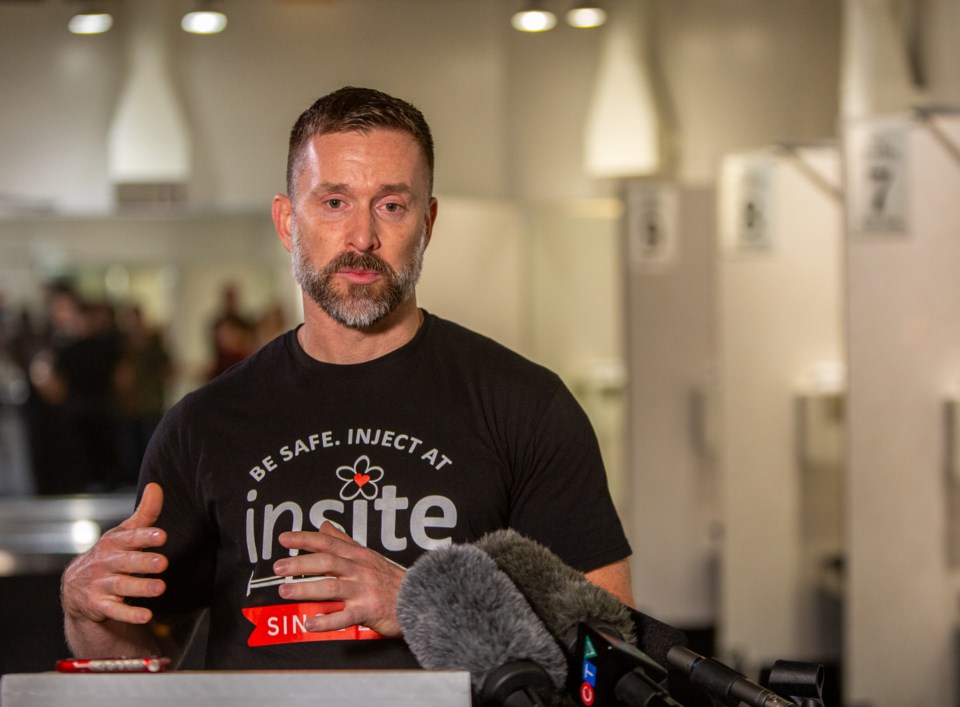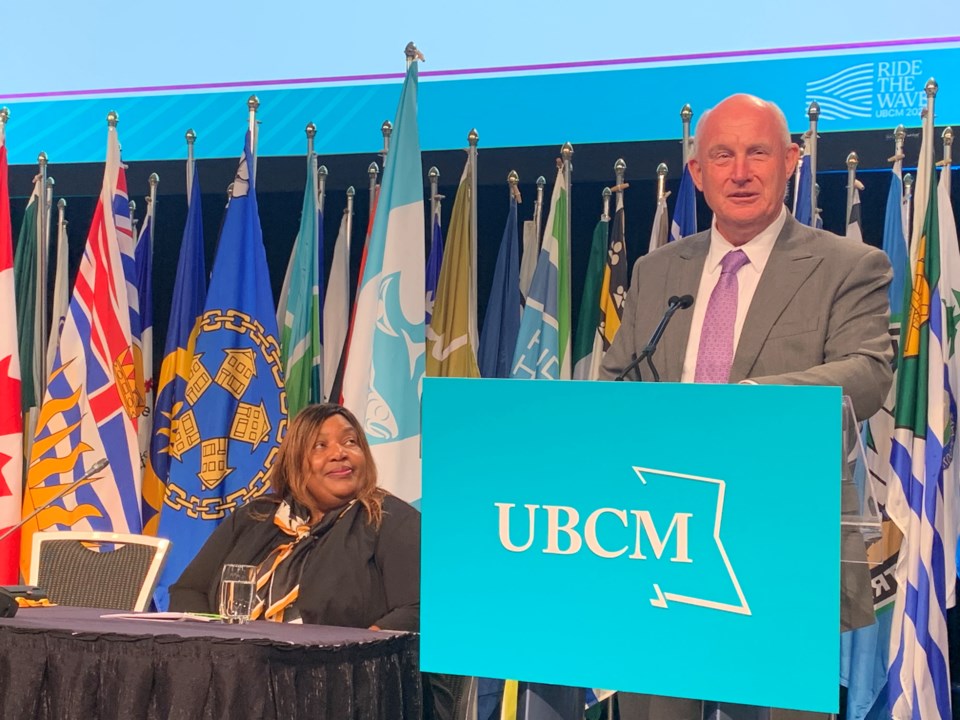Helping people with addictions and mental health issues in B.C. should involve more access to treatment, harm reduction and safe use spaces, delegates to the Union of B.C. Municipalities (UBCM) conference heard Sept. 17.
A panel discussion involving police, municipal leaders and a health professional all agreed compassion for people with problems beyond their own control needs to be at the core of the response to an issue that has multiple spin-off problems throughout the province.
And responses, the panel said, need to be coordinated.
UBCM president Trish Mondewo, a Coquitlam city councillor, called the situation extremely complex, a situation encompassing the toxic drug crisis, public drug use concerns and impacts on first responders often suffering from compassion fatigue.
Solicitor General Mike Farnworth said the toxic drug crisis impacts not only B.C. but also the rest of Canada and North America.
He said while there have been thousands of overdose deaths, many more people continue to suffer from untreated mental health disorders or brain injuries as a result of drug use.
And, he said, there are overlapping challenges where drug users’ decision making is impaired and they can’t find their way out of the drug-using cycle.
He said secure treatment centres for people are already in operation in correctional facilities.
And, the ministry said, youth programs are coming online to assist young people “before small problems become big ones.”
Assisting people with a way out of the addiction cycle is one part of the response, Farnworth said. Going after the source of drugs and gangs as well as precursor chemicals coming in via ports is another part, he said.
Still, he said, Ottawa needs to step up to provide greater port security, as well as reining in cuts to Canada Border Services Agency.

Eighth year of drug crisis
Vancouver Coastal Heath deputy chief medical health officer Dr. Mark Lysyshyn said the province is in its eighth year of the overdose public health emergency.
He said the death rate from drugs is higher than the combined rates for homicide, suicide and motor vehicle accidents combined.
The initiatives that are working to stem the tide of deaths, he said, are use of Naloxone to reverse opioid overdoses; opioid agonist therapy for treatment for addiction to opioid drugs such as heroin, oxycodone, hydromorphone; supervised consumption sites and overdose prevention sites.
“Programs like these lessen the impact on first responders,” he said.
Still, Lysyshyn said, “the toxic drug supply remains the cause of this emergency. It hasn’t been addressed.”
And, he stressed, “people who suffer from these addictions don’t bring this on themselves.”
Lysyshyn said B.C. needs more treatment facilities and harm reduction services.
“Harm reduction services keep people alive so they can get treatment,” he said.
Municipal responses
Port Alberni Coun. Deb Haggard said her community has experienced a lack of housing for people challenged with mental health and addiction issues.
She said there aren’t enough beds to keep people safe while they seek help.
“They get preyed on by slum landlords,” she said.
Kelowna Mayor Tom Dyas said first responders are increasingly challenged as a result of of the drug-health crisis.
Dyas said people needing help need to be escalated to greater levels of treatment once they start moving away from using. He said if they get put back on the street too early, the cycle just continues.
“Putting people back on the streets is not good for anyone,” he said.
Moreover, Dyas said, there needs other be a national strategy to deal with the challenges, a solution based on scientific evidence.
“The politicians need to get out of the way,” he said.
And, Milo Macdonald, chief administrative officer for the City of Fort St. John and a former RCMP officer, said a lack of housing has led to homelessness, street lawlessness and an adversarial attitude of residents toward people with addiction and mental health challenges.
He said first responders “experience a relentless march of tragedy.”
And, Macdonald said, the drug supply seems to be unchallenged, which has resulted in significant violent crime.
Macdonald said there needs to be greater access to detox and treatment.
Insp. Phil Heard of the Vancouver Police Department spoke on behalf of Fiona Wilson, chair of the B.C. Association of Chiefs of Police Drug Advisory Committee.
He said the province has co-occuring issues:
• the overdose crisis;
• organized gang conflict which underlies the drug crisis; and,
• property crime driven by the drug crisis as users seek things to sell to buy drugs.
He called them three interwoven public safety issues.




